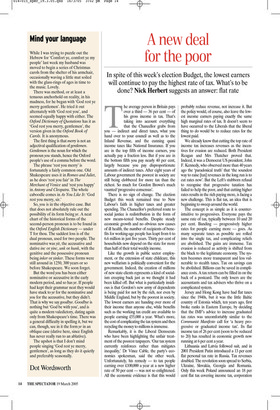Mind your language
While I was trying to puzzle out the Hebrew for ‘Comfort ye, comfort ye my people’ last week my husband was moved to begin a series of Christmas carols from the shelter of his armchair, occasionally waving a little mat soiled with the glass-rings of ages in time to the music. Lovely.
There was method, or at least a tenuous anchorhold on reality, in his madness, for he began with ‘God rest ye merry gentlemen’. He tried it out alternately with ‘God rest you’, and seemed equally happy with either. The Oxford Dictionary of Quotations has it as ‘God rest you merry, gentlemen’, the version given in the Oxford Book of Carols. It is anonymous.
The first thing is that merry is not an adjectival qualification of gentlemen. Gentlemen is the noun for which the pronoun you stands, hence the Oxford people’s use of a comma before the word.
The phrase ‘rest you merry’ is fortunately a fairly common one. Old Shakespeare uses it in Romeo and Juliet, as he does ‘rest you fair’ in The Merchant of Venice and ‘rest you happy’ in Antony and Cleopatra. The whole caboodle comes in As You Like It: ‘God rest you merry, sir.’ So, you is in the objective case. But that does not absolutely rule out the possibility of its form being ye. A neat chart of the historical forms of the second-person pronoun is to be found in the Oxford English Dictionary — under T for thou. The saddest loss is of the dual pronoun, used for two people. The nominative was yit, the accusative and dative inc or yinc, unk or hunk, with the genitive and the possessive pronoun being inker or yinker. These forms were still around in 1250, 300 years or so before Shakespeare. We soon forget.
But the word you has been either nominative or accusative in the early modern period, and so has ye. If people had kept their grammar neat they would have stuck to ye for the nominative and you for the accusative, but they didn’t. That is why we say goodbye. Goodbye is nothing but ‘God be with you’, and is quite a modern valedictory, dating again only from Shakespeare’s time. There was a general difficulty in spelling it, but we can, though, see in it the form ye in an oblique case (dative here, since English has never really run to an ablative).
The upshot is that I don’t mind people singing ‘God rest ye merry, gentlemen’, as long as they do it quietly and preferably seasonally.
Dot Wordsworth
















































 Previous page
Previous page